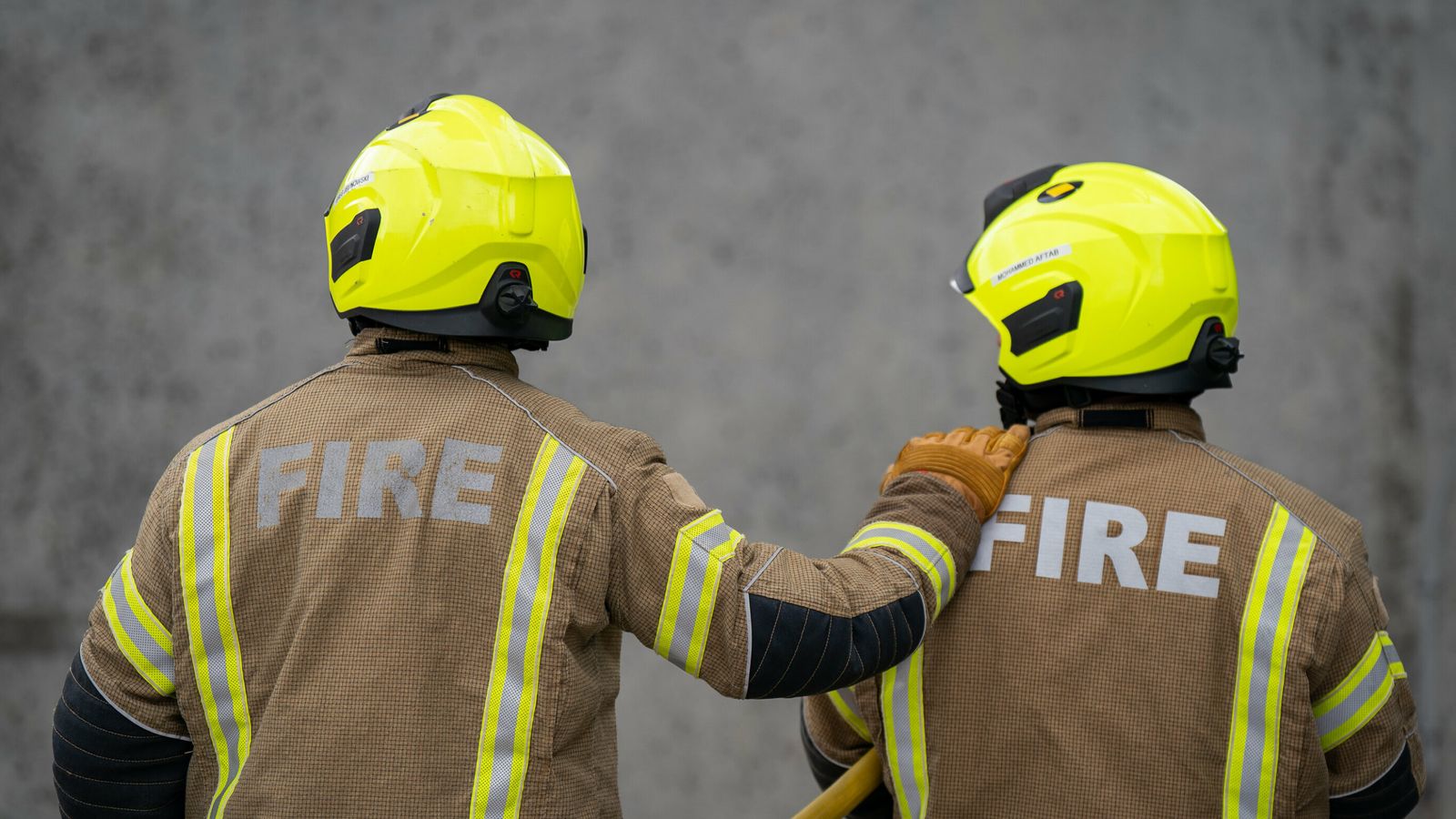The highest-paid fire service bosses earn more than six times a regular firefighter’s salary, according to a union.
The Fire Brigades Union (FBU) said Freedom of Information requests reveal “stark inequalities” in pay, at a time when many firefighters are facing “in-work poverty”.
Chief fire officers get an average of £148,000, the union said.
The highest-paid earns £206,000 – more than six times what an ordinary firefighter is paid, they added.
The union published the figures as firefighters continue to vote on whether to strike over pay after rejecting an offer of 5%.
FBU general secretary Matt Wrack said: “Firefighters and control staff are facing yet another real terms pay cut while fire chiefs rake in huge salaries.
“FBU members are increasingly facing real ‘in work’ poverty, with firefighters having to rely on foodbanks and take on additional jobs to afford the basics.
No plans for mandatory COVID-19 testing of arrivals from China, UK government says
US bomb cyclone bringing bad weather to UK as yellow warning issued
Targets to make England ‘smoke free’ by 2030 will be missed by nearly a decade, charity warns
“At the same time, some fire chiefs are also trying to persuade firefighters and control staff to step back from industrial action, to simply shut up about salaries that are several times smaller than their bosses.
Read more:
Firefighters to vote on strike action after rejecting 5% pay offer
Warning of more chaos on rail network into new year due to latest strikes
“It’s insulting and stinks of hypocrisy of some chief officers who refuse to make the case for better pay for their workers.
“Chief fire officers are not worth six times more than firefighters, it was the latter who were called key workers during the pandemic delivering vital services including moving the bodies of the deceased.
“Firefighters and control staff are being left with no other choice but to take action.”
The ballot result is due at the end of January.
Pay negotiations are with representatives from employers – typically local authorities – but the FBU insists “a big factor in all of this is central funding”.
If they went ahead with strike action, firefighters would be the latest in a long line of workers to have taken industrial action in recent months.
Nurses, rail workers, civil servants and postal workers are among the tens of thousands of people to have already walked off the job in their fight for better pay.
Ministers have insisted they cannot afford to give striking workers inflation-busting pay rises.
But Labour has criticised the government for refusing to negotiate with unions.






















